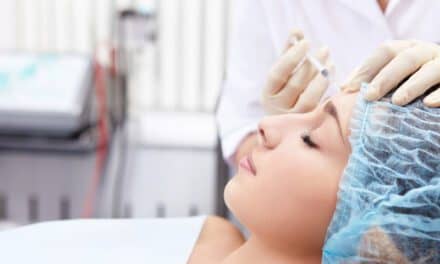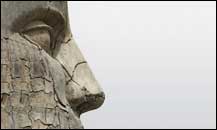Coveting youth has never been more popular — or controversial.
Beauty magazine Allure made a (SPF-covered) splash this past summer when it announced it would be banning the term “anti-aging” within its pages. The phrase is “subtly reinforcing the message that aging is a condition we need to battle — think anti-anxiety meds, antivirus software, or anti-fungal spray,” Allure’s editor-in-chief Michelle Lee wrote. “Growing older is a wonderful thing because it means that we get a chance, every day, to live a full, happy life.” Its Condé Nast sibling Vogue Italia also chimed in by putting septuagenarian actress Lauren Hutton on the cover of its October issue, dedicated to women above 60.
In some ways, the two influential fashion rags are merely chasing trends. In 2030, 26.1 percent of America’s population will be sexagenarian, up from 20.7 percent in 2015, and it makes business sense to not label the affluent, mature crowd passé. Fashion brands are using older women as ambassadors — Hutton reps Calvin Klein lingerie — and even Hollywood producers, long the bête noire of women above 30, are accommodating older actresses.
But Americans aren’t putting their money where their mouth is. Even as they laud growing old, beauty cabinets are being filled with products that espouse anti-aging properties. Research consultancy Euromonitor predicts that $4.2 billion worth of wrinkle-warding products will be sold in the US in 2021, an increase of over 30 percent from 2011. Prestige skincare products touting anti-aging quantities made up 40 percent of all skincare sales in the US last year, data from NPD show.
The sales are driven not just by baby boomers and Gen X-ers, but also millennials who claim to like their kale au naturel. “We’re seeing a change among millennials who are taking on preventative products rather than waiting for cures,” says Kayla Villena, Euromonitor research analyst. “We see it with diet, exercise and lifestyle trends, so it makes sense that the leap is happening to skincare. It’s top of the mind for millennials.”
Among the steps undertaken by young people secretly terrified of aging include getting preventative Botox in their 20s, which some experts say fixes habits like reflexive brow pursing that promotes wrinkles later on. They’re also making heavy use of products with SPF and properties like retinols — a vitamin that combats visible aging — and hyaluronic acid with peptides, which maintain the skin’s moisture level. (Dryer skin is a common dermatological condition as one ages.)
And beauty brands are increasingly promoting the technology they pour into their serums and creams. “The industry is harnessing its focus on high-tech new ingredients because millennials are interested in the technology,” says Villena. “It really resonates with the group.”



